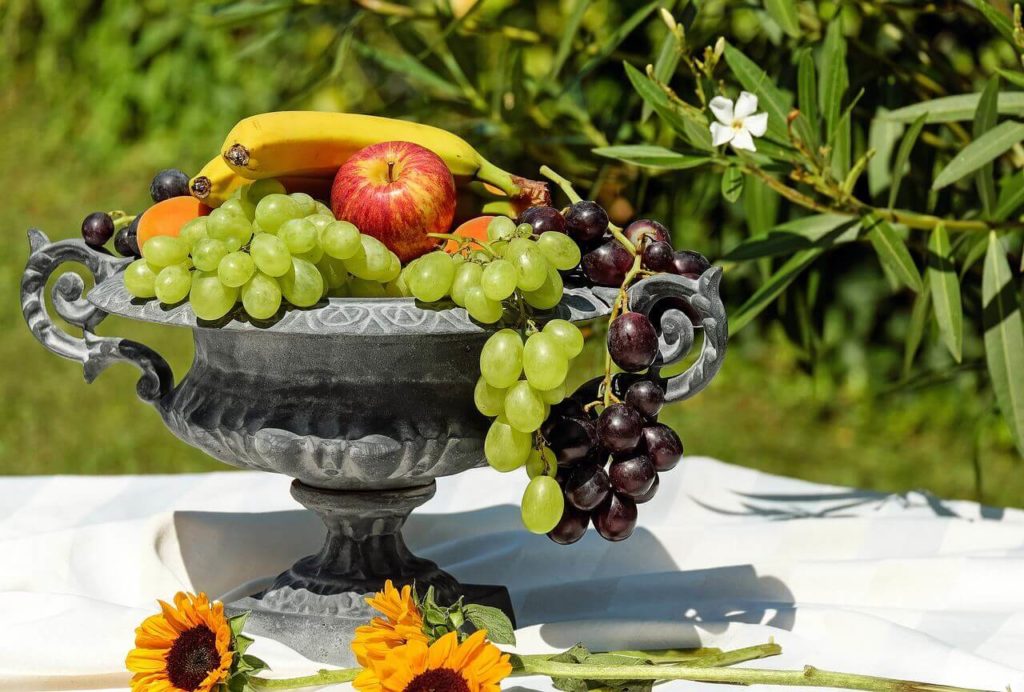Ageing well

Tai Chi for balance
Research has found that doing Tai Chi, or other exercises that help improve balance, can help reduce the risk of falling in older people. So that’s another good reason to do more exercise as you get older.
But all exercise is good for your brain and physical health, so get moving.
Delicious ways to keep your brain young
There is research to suggest that all of the following can help to keep your brain young:
- Extra virgin olive oil: try drizzling it over your salads
- Blueberries and strawberries: maybe whizzed up in a smoothie
- Nuts and seeds: try KIND Nut bars they are delicious
- Green leafy vegetables and turmeric: our recipe for spinach and potato curry is divine
- Eating mushrooms twice a week may help to reduce the risk of mild cognitive decline
It’s also important to make sure you are eating enough foods high in vitamin B12. Vitamin B12 keeps your nerves working properly, but your body finds it more difficult to absorb as you get older. This vitamin is only found in animal related foods such as meat (especially red meat), oily fish (tuna, salmon), eggs, cheese and yoghurt. If you are a vegan, make sure you choose soy products that have been supplemented with vitamin B12.
Wear your hearing aid
Recent research suggests that hearing loss and dementia may be linked, and that using hearing aids may reduce the risk of developing dementia. So if you are worried about your hearing, this is another good reason to go and get it tested. And if you do have a hearing aid, make sure you use it. If it doesn’t work properly, go back and have another test.
Fun ways to keep your brain young:
Exercise: either cardio or strength training exercises can help to protect against memory loss. Recent research showed that a hormone called irisin is released during exercise which can protect the brain.
Learn to play a musical instrument: research has suggested that this may protect against dementia
Learn a new language: research suggests that being bilingual or learning a language may protect against memory loss.
Take up Yoga: Research at UCLA suggests that yoga can help to reduce the problems associated with early Alzheimers, whilst earlier research linked it to improvements in memory in people with early dementia.
Get out of the house: studies have shown that loneliness is linked to dementia, so make an effort to meet up with friends, try a new hobby or start volunteering today.
Floss your teeth: although studies have suggested that flossing your teeth may be linked to a lower chance of developing Alzheimer’s and heart disease, the evidence is mixed, but it’s always a good idea to look after your teeth.
Try cold water swimming: or take a cold shower. Research suggests that the ‘shock’ of cold water may protect the brain from degenerative diseases.
Drink lots of water
Even mild dehydration can lead to cognitive problems, so make sure that you drink plenty of water each day to keep your brain healthy.
Too Young to Get Old
Christine Webber’s Too Young to Get Old book is a guide for the over 50’s on how to carry on living life to the full. She has now followed this up with a blog by the same name, which offers helpful tips for continuing to stay healthy in later years.
Prevent Pressure Sores
If you or someone you know is at risk of developing pressure sores, this website has some good tips to try to prevent them developing, and a link to a useful YouTube clip.
